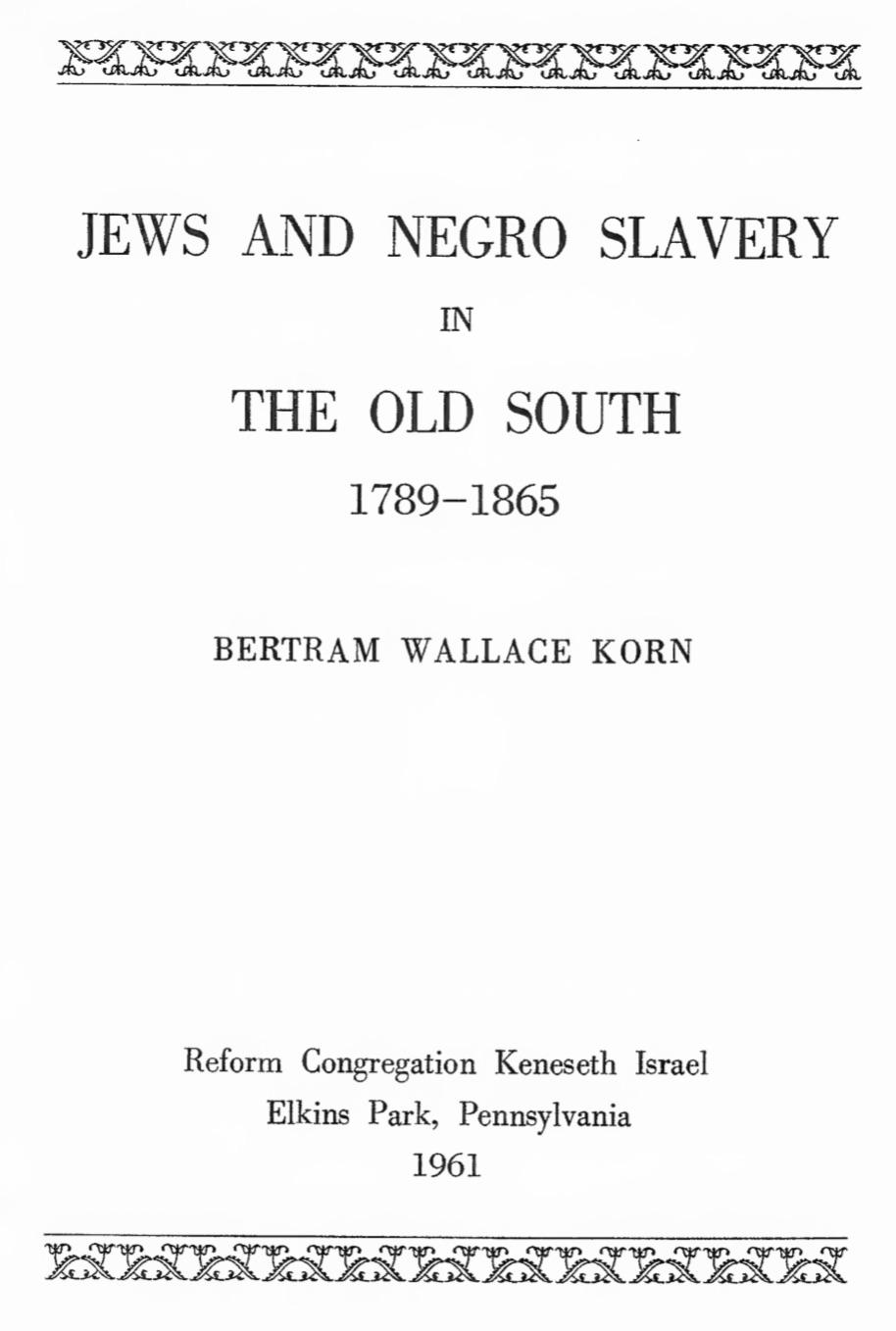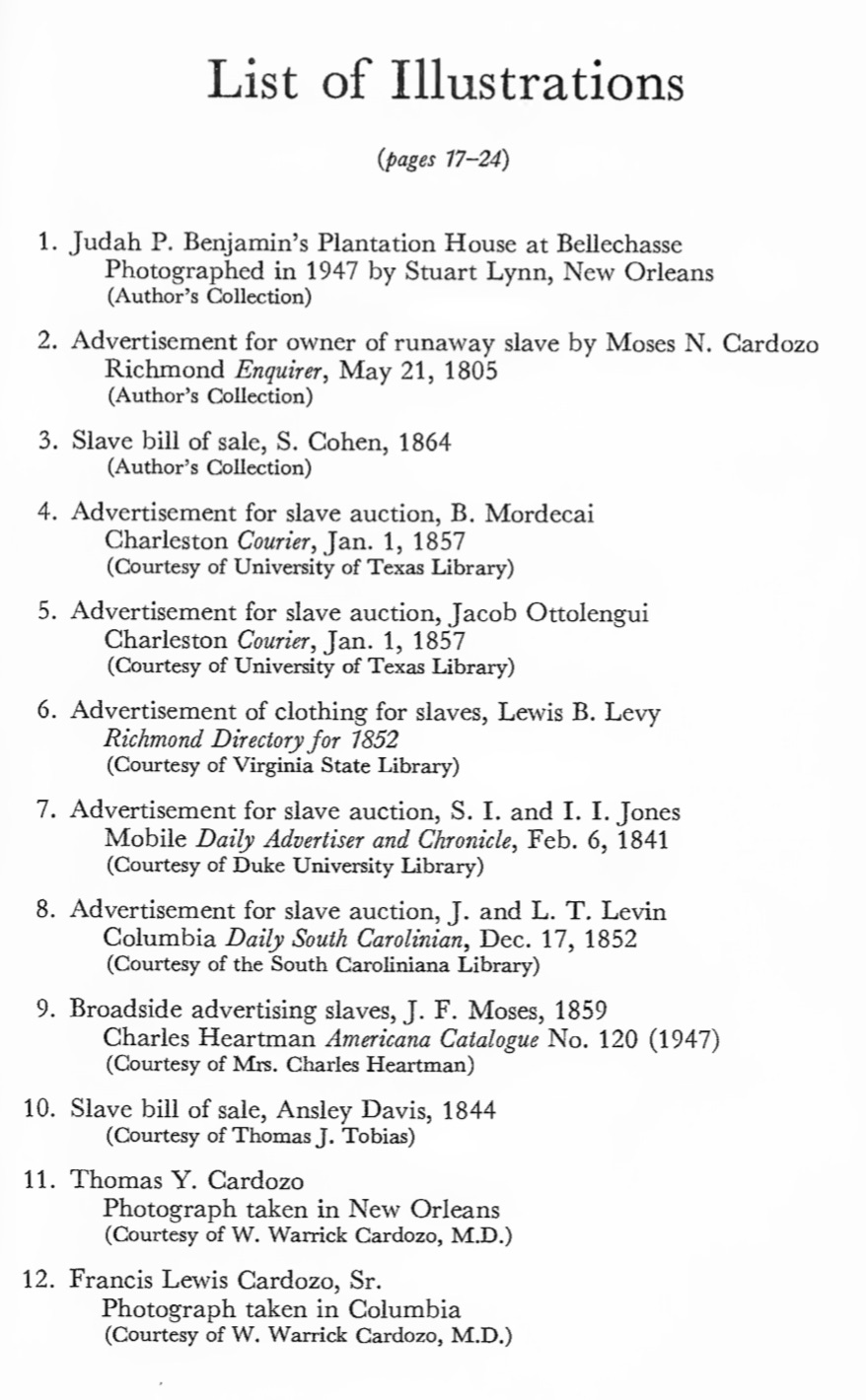Jews and Negro Slavery in The Old South - 1789-1865 (1961) by Bertram Wallace Korn
jews usa blacks hebrews africans america caribbean cotton newport plantations sharecropper white-slavery sugar rum plantationBertram Wallace Korn
Jews and Negro Slavery in The Old South - 1789-1865 (1961)

Delivered as the Presidential Address at the Fifty-Ninth Annual Meeting of the American Jewish Historical Society, February 18, 1961, and reprinted from the March, 1961, issue of its quarterly Publication, with the assistance of a grant from the Rabbi's Publication Fund of Reform Congregation Keneseth Israel, Elkins Park, Pennsylvania.
Introduction
As we inaugurate this five-year long observance of the Civil War, there is certain to be no diminution of the quantity of historical volumes already flooding forth from the nation's presses. One of the major subjects will undoubtedly continue to be the question of the causes of the Civil War. Some writers will favor political interpretations; others will emphasize economic factors; still others will cite social ingredients. Some will blame the North, and others the South. Some will denounce fool-hardy leadership in the South, or in the North, or both. Others will underline the failure of ordinary citizens in both sections to express their feelings and desires. Many of these writers will be so enamoured of their theories that they will overlook the all-pervasive influence of the crucial problem: slavery. Political, economic, social, psychological, and other currents were present as contributory factors, but they were all related in one way or another to the persistence of the slave system. Had Negro slavery not been an integral aspect of the life of the Old South, there would have been no conflict, no secession, no war. Differences there might have been, but not violence and bloodshed. Slavery was the single indigestible element in the life of the American people which fostered disunion, strife, and carnage, just as the concomitant race problem has continued to an important degree to be a divisive force in American life to this day.
Previous students of the American Jewish scene have appeared to be reluctant to investigate the question of Jewish participation in the slave system. Works on local Jewish history in Southern communities, in particular, have either glossed over or altogether ignored this basic aspect of the life and experiences of the Jews of the Old South. It is my purpose to attempt to survey the following themes: Jews as planters, and as owners of slaves; the treatment of slaves by Jews; the emancipation of slaves by Jews; Jews as harsh taskmasters; business dealings of Jews with slaves and free Negroes; Jews as slave dealers; cases of miscegenation involving Jews and Negroes; and opinions of Jews about the slave system.


Downloads and Links
- Read a blog post with some notes and highlights
- Download Jews and Negro Slavery in The Old South - 1789-1865 (1961) by Bertram Wallace Korn - PDF (23.8 MB) - 66 pages.
- Read [https://archive.org/details/1961-jews-and-negro-slavery-in-the-old-south-1789-1865) on The Internet Archive and download in different formats
- Web search for the book by author and title
